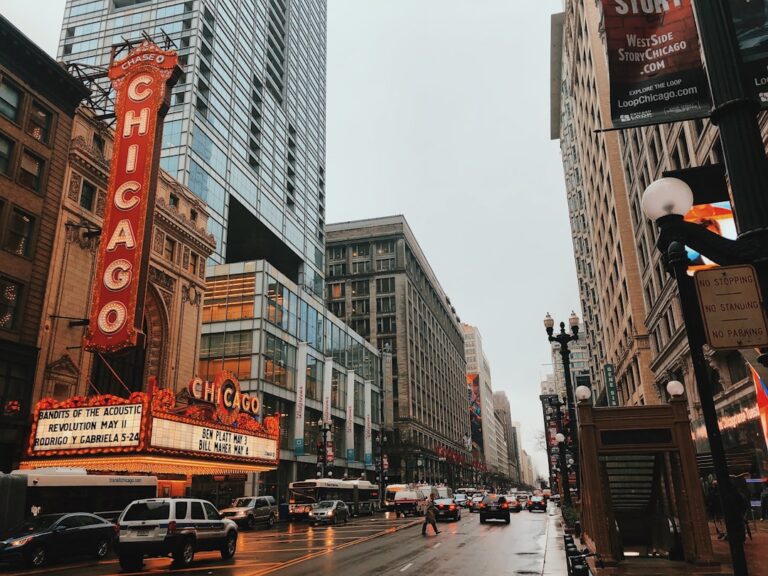Robocalls pose a significant disturbance and fraud issue in Illinois, but strict privacy laws offer legal recourse for affected residents. Nonprofit organizations specialize in consumer protection, educating citizens about their rights, and supporting them against unwanted calls. These groups tackle robocalls through education, call-blocking tools, and collaboration with regulators to push for stricter anti-robocall laws. By empowering communities with knowledge and resources, Illinois nonprofits aim to create a comprehensive solution to mitigate robocalls and protect residents' privacy, answering the question "Can I Sue For Robocalls Illinois?"
Illinois residents face a growing nuisance from robocalls, with millions of unwanted calls flooding in daily. This article explores the vital role that the state’s nonprofits play in tackling this issue. We delve into the impact of robocalls and the legal options available to Illinoisans, focusing on the unique ability of nonprofits to combat this modern problem. By examining strategies employed and future prospects, we uncover how these organizations are empowering individuals to take back control, including potential legal avenues under ‘Can I Sue for Robocalls Illinois’.
Understanding Robocalls and Their Impact in Illinois

Robocalls, automated telephone calls from prerecorded messages, have become a widespread nuisance in Illinois and across the nation. While many robocalls promote legitimate services or products, others are fraudulent attempts to scam unsuspecting residents. These unwanted calls can disrupt daily life, waste valuable time, and cause emotional distress. In Illinois, where privacy laws are stringent, residents may wonder if they have legal recourse against persistent robocallers. The good news is that yes, you can sue for robocalls in Illinois if they violate state or federal telecommunications regulations.
The impact of robocalls on the average Illinois resident can be significant. From phishing scams attempting to steal personal information to aggressive marketing calls invading privacy, these automated messages have led many to feel powerless against them. Nonprofits in Illinois play a crucial role in advocating for and educating residents about their rights regarding robocalls. They also offer support and resources to help individuals combat these unwanted intrusions into their daily lives.
The Legal Framework: Can Nonprofits Take Action Against Robocallers?

In Illinois, as in many states, the legal framework provides certain protections against robocalls, but the power to take collective action against offenders lies with a diverse range of nonprofits. While individuals might find it challenging to sue for robocalls, these organizations have the resources and mandate to address the issue on a larger scale. Nonprofits specializing in consumer protection, privacy advocacy, and telecommunications can play a crucial role in navigating the complex legal landscape surrounding robocalling regulations.
They can engage with regulatory bodies to push for stricter laws, educate the public about their rights, and offer support to those affected by unwanted calls. Furthermore, these groups may collaborate to develop strategies that disrupt or deter robocallers, ultimately fostering a more accountable and transparent communications environment for Illinois residents.
Strategies Nonprofits in Illinois are Employing to Combat Robocalls

Illinois nonprofits are at the forefront of tackling the growing issue of robocalls, employing innovative strategies to protect residents from unwanted and fraudulent calls. Many organizations in the state have taken a proactive approach by educating communities on how to recognize and report suspicious calls. They host workshops and webinars, providing tips on blocking numbers and using call-blocking apps. These efforts empower individuals to take control of their phone lines.
Additionally, these nonprofits are collaborating with local authorities and telephone service providers to develop robust systems for identifying and mitigating robocalls. By sharing data and resources, they can enhance the state’s overall defense against this modern nuisance. Given the legal implications of robocalls, including potential Can I Sue For Robocalls Illinois scenarios, these initiatives are crucial in advocating for residents’ rights and privacy.
The Future of Nonprofit-Driven Robocall Mitigation Efforts

The future of nonprofit-driven robocall mitigation efforts in Illinois holds promise, with innovative strategies emerging to combat this growing nuisance. Beyond traditional methods, nonprofits are exploring new avenues to educate communities on “can I sue for robocalls Illinois?” and empower them to take action. This includes leveraging technology to block unwanted calls, developing targeted awareness campaigns, and collaborating with regulators to advocate for stricter anti-robocall laws.
Such initiatives aim to create a multifaceted approach that addresses the root causes of robocalls while providing support to those affected. By fostering partnerships between tech companies, legal experts, and community organizations, Illinois nonprofits are poised to play a pivotal role in shaping a quieter future, ensuring residents have access to resources and tools to mitigate robocalls effectively.






